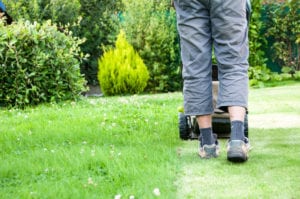As spring blossoms, people will begin spending more time outdoors enjoying the fragrant and inviting atmosphere. For those suffering from a mental health disorder, the outdoors provides an excellent opportunity to improve healthy coping skills and encourage proper thought processes. If you want to boost mental health for yourself or a loved one this spring, consider how the following five activities will improve your mood, physical health, and your overall mental health:
1. Plant a Garden
Few outdoor activities offer the benefits of growing your own garden. According to the publication “The Benefits of Gardening and Food Growing for Health and Wellbeing”, gardening has been shown to aid mental health in the following ways:
- Improve social interactions
- Reduce the effects of stress
- Reduce amount of needed medications
- Reduce urges to abuse substances
2. Exercise
According to the publication “Exercise for Mental Health”, exercise, ranging in intensity from mild to vigorous, causes the release of endorphins and improves circulation. The term “endorphins” refers to the body’s natural painkilling hormones, or endogenous morphine. Although similar in structure to man-made medications, this hormone is not dangerous to the body.
In addition to providing these benefits, exercise promotes muscle tone, enabling a person to perform more challenging tasks with less effort. Exercise is particularly beneficial for people suffering from addiction as exercise removes the primary goal of achieving an altered state-of-mind.
3. Attend Sporting Events
Attending sporting events includes both acting as a spectator and participating in sporting events. Sports instill a sense of team unity and strive towards a common goal. Furthermore, exposure to ultraviolet light in sunlight promotes activation of Vitamin D in the skin, which improves mood and decreases depressive thoughts.
4. Host a Barbecue
Many people with mental health disorders constantly face the challenges of social interaction. Some mental health disorders, such as social phobic anxiety disorder, are directly treated by exposure to social situations.
If you want to expand your social interactions, the Mayo Clinic suggests that you invite a few family members to an outdoor barbecue. The social interaction reduces anxiety and stress, and you have control over the situation. If you feel as though the event is too stressful for your mind, you can retreat to your home to re-gather your thoughts.
5. Perform Outdoor Repairs
Spring brings more than just fresh air and flowers; it signals the time for making repairs caused by winter storms and maintaining the upkeep of your lawn or home’s exterior. When you make a repair to your home, you are setting a goal for a given task.
Consider how psychotherapy (or talk therapy) focuses on the formation of small, achievable goals, which, when completed, provide positive reinforcement of appropriate thought processes. If you do not have any repairs to make, try cutting the grass, trimming the hedges, or planting a few flowers near your doorway.
The scent of freshly cut grass and fresh air promotes positive moods and increases your energy. For some suffering from seasonal affective disorder, the scent of the outdoors can be enough to lure them out of their homes and depression. Seasonal affective disorder occurs due to naturally occurring low levels of sunlight during winter, which results in lower levels of Vitamin D and less energy, according to the Mayo Clinic.
Keep Up On Professional Care
Spring is an excellent time for treating mental health conditions without additional trips to see your therapist or psychiatrist; although, you must not substitute these activities for obtaining proper care for your mental health conditions. Wanting to get help for mental health becomes easier in the spring as opportunities for developing healthy coping skills abound, and you have plenty of things to do to occupy your empty time. Even if you receive treatment at an inpatient facility, spring will be a step away.
Sources
(1) G. Davies, M. Devereaux, M. Lennartsso, U. Schmultz, & S. Williams, The Benefits of Gardening and Food Growing for Health and Wellbeing, American Horticultural Therapy Association, 2014, http://ahta.org/news/benefits-gardening-and-food-growing-health-and-wellbeing
(2) Ashish Sharma, Vishal Madaan, & Frederick D. Petty, Exercise for Mental Health, US National Library of Medicine, 2006, http://www.ncbi.nlm.nih.gov/pmc/articles/PMC1470658/
(3) Sue Penckofer, Joanne Kouba, Mary Byrn, & Carol Estwing Ferrans, Vitamin D and Depression: Where Is All the Sunshine?, US National Library of Medicine, June 1, 2011, http://www.ncbi.nlm.nih.gov/pmc/articles/PMC2908269/
(4) Mayo Clinic Staff, Seasonal Affective Disorder: Lifestyle and Home Remedies, Mayo Clinic, September 12, 2014,http://www.mayoclinic.org/diseases-conditions/seasonal-affective-disorder/basics/lifestyle-home-remedies/con-20021047
(5) Mayo Clinic Staff, Seasonal Affective Disorder: Causes, Mayo Clinic, September 12, 2014, http://www.mayoclinic.org/diseases-conditions/seasonal-affective-disorder/basics/causes/con-20021047












